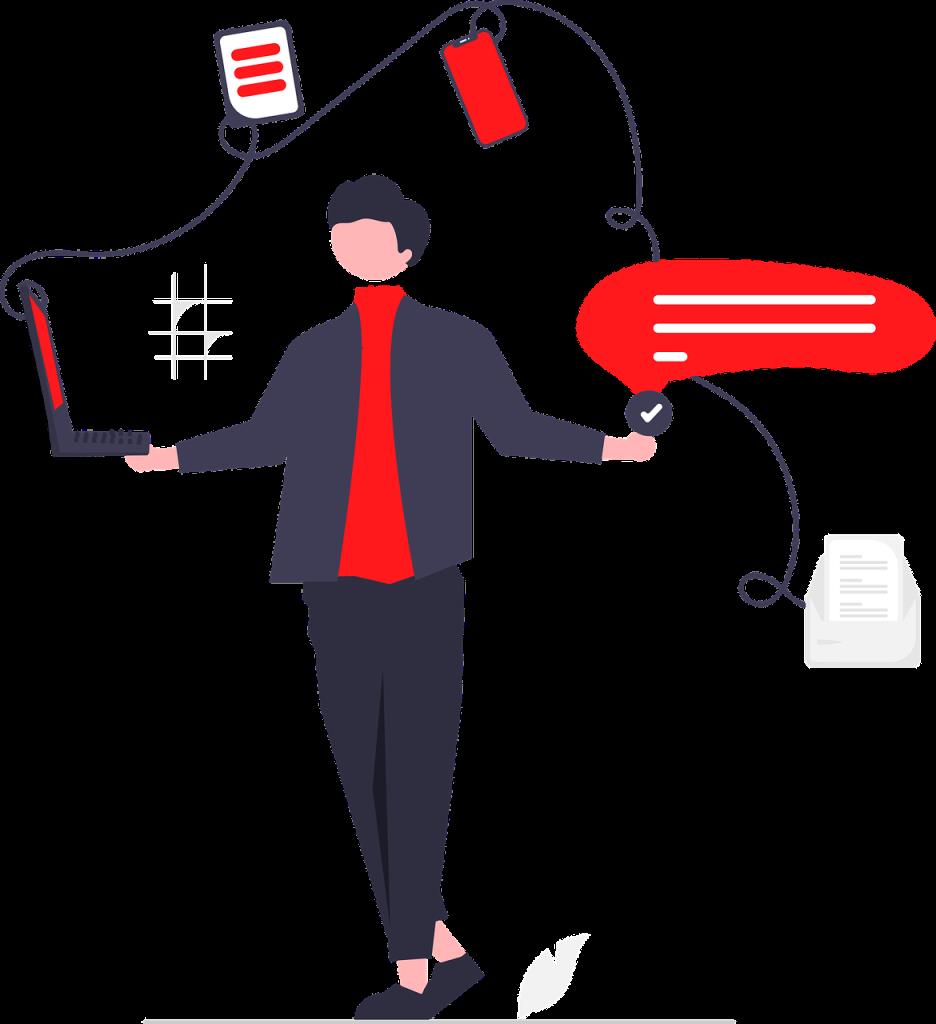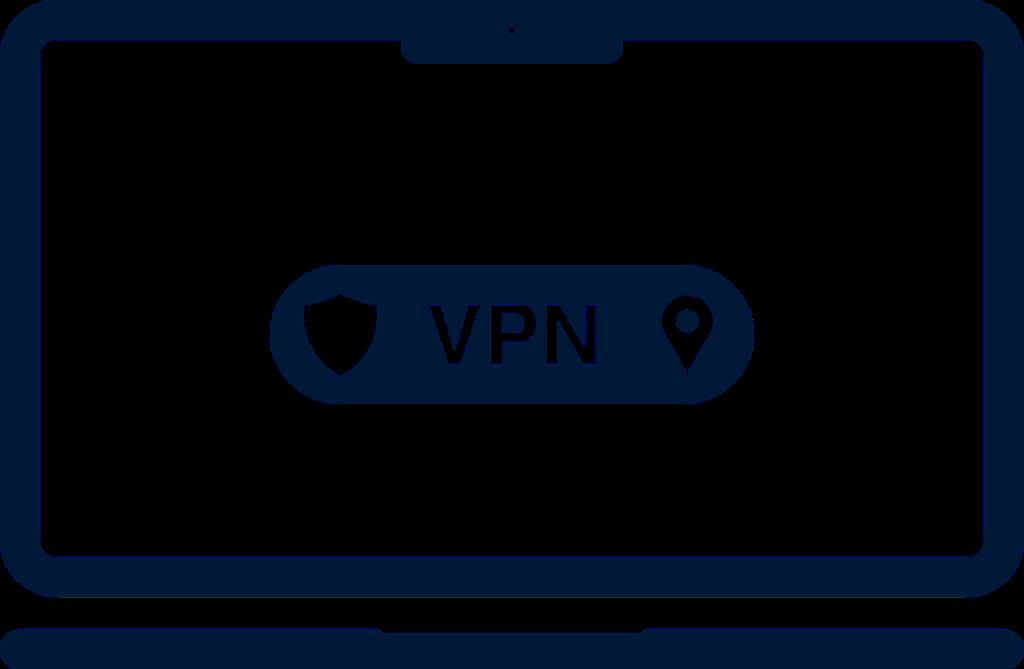Protecting your devices and data is an important part of being a digital nomad. You don’t want to lose something you worked so hard for. Digital nomads might sometimes be traveling in areas that aren’t safe and face threats to their data or devices.
Digital nomads work remotely so they can travel anywhere at any time. You might have seen photos of them working at the beach or from their apartments with a seaview. Yes, that is called being a digital nomad.
If you are someone like that, don’t go anywhere because in this article, we’ll be talking more about how you can entirely protect your data and devices.
Factors that influence a digital nomads device and data security

A digital nomad is constantly traveling and in some cases, they might end up in an area that might be dangerous. Not every area in the world is safe and let’s face it, when you run into a situation where you are physically or virtually harmed, you need to follow a few techniques to protect yourself.
Let’s look at the factors that influence a digital nomad’s device and data security:
- How often they travel: Nomads might be traveling every month or year, depending on their incomes or how their online job works. Every new destination brings a set of risks since the nomad doesn’t know where he or she is going.
- Where they live and work: Nomads might be living in poorer conditions because of the low living costs. However, there are some nomads that might be living in expensive areas where they prefer to live. This might be because they want to get their work done and ensure that they have a fast internet connection and enough networking opportunities.
- Their daily routine: Many nomads might be working all night or all day. It really depends on their personality and how they live. Going out late at night might put them at higher risk, especially when they are passing by in unfamiliar streets. Drinking is a factor that can put them in danger too.
Let’s face it, in each destination a digital nomad goes to, they are more at risk of facing a cyber threat.
7 Ways to protect your devices and data
We spoke about the factors that affect the digital nomad’s lifestyle. Now, it’s time to discuss a few ways you can protect your data and devices.
- Use powerful passwords for maximum data privacy

You’ve probably heard about this before and it’ll get repeated over and over. Data privacy matters a lot, especially to a digital nomad and one common way to stop these attacks is to set up a strong password.
You should really think about it, what does privacy mean to you? We know that it’s important for a digital nomad and the last thing you want to happen is to lose all of your important data.
Moreover, if you want to know if your password is strong enough, you can use a Password Strength Meter tool. It’ll show you a meter that states whether your password is weak or strong and you’ll know what to do after.
You don’t want to be the person that gets their account hijacked because of an easy password. After all, online attackers are good at thinking of alternative ways to get into your accounts.
- Tax compliance
As a digital nomad, wherever you go, you’ll need to pay taxes. If you live in a country like the U.S.A, or China, you’ll need to also pay for taxes even if you live outside these countries. We are talking about whether you have Chinese or American citizenship.
However, tax compliance is important for protecting your devices and data. New technologies like global token tax compliance services are bringing many advantages to tax systems, allowing automated analysis of large amounts of data and minimizing error rates.
New technologies are processing taxpayers data, which includes sensitive information and seeks to not breach privacy rights. By processing large amounts of data, tax administrations can cluster taxpayers based on their profile for deciding which taxpayers are going to be audited.
These new technologies in the tax field are used for protecting public interests and ensuring that data privacy is respected by tax authorities too. This is important for digital nomads as well since protecting your data also involves being respected by governmental institutions as well.
- Create regular backups
Use cloud sync for protecting important files that can easily be accessed. All your data should regularly be stored on your backups. This is even more important if you lose one of your devices. Whatever happens, you can easily copy and paste your backup files and regain access to your data.
If you want to sync large files, you’ll need to use apps like Dropbox. This way, you can easily access all files from multiple devices on the latest versions and have specific folders dedicated to these files, but ensure that certain information isn’t too sensitive.
- Use a VPN

Source
Virtual Private Networks (VPN) allow remote workers to establish secure connections on their desktops and access important files and applications whenever they need to. VPNs grant you:
- Privacy: A VPN disguises your connection to appear as if you are from another location.
- Protects sensitive information: VPNs can hide sensitive information behind dummy information.
- Cost-effective security: Even though prices vary, VPNs can offer you a cheap alternative compared to security solutions.
As of now, there are around 1.5 billion VPN users in the world and the global VPN market is worth around $44.6 billion.
- Research the areas you are traveling to
If you are someone that travels a lot, a good rule of thumb would be to carefully research all the places you are going to. The online world has made it easier for you to research and all reviews are there to help you learn more about the safety of these areas.
Find out which neighborhoods locals might tell you to avoid and other important information you should know about.
- Enable multi-factor authentication (MFA)
Compared to a single layer of authentication, multi-factor authentication is a much more protective solution you can use. This adds an additional layer of security for preventing any unauthorized users from accessing any accounts even when a password gets stolen.
Businesses will use MFA to identify users’ identities and provide convenient access to authorized users. MFA requires multiple forms of ID verification from the second the user registers. Afterwards, the system will store the user’s information and verify it for the next login.
- Store everything in a secure area

For keeping your equipment safe, you need to make sure you store it in a safe place at all times, or leave it to people you can trust. If you’re staying at a hotel, always consult with receptionists to make sure you are leaving your equipment in a safe area.
Avoid leaving your bags or laptop in areas where you know they can get stolen. If you like working from a cafe or coworking office, tell people you can trust to look after your stuff. If you don’t know anybody there, you can always take your stuff with you. It’s not being paranoid, but being sure your stuff is safe. Overall, you need to:
- Always keep your computer within arm’s reach
- Never ask strangers to look over your stuff in public areas like a cafe, library, etc.
- Read reviews about the place you are staying before you go there.
Your equipment should be put in areas nobody except you can know about. Put your laptop somewhere under a sofa, hide it in your car’s truck, or any other area you can think of. Avoid leaving headphones or any other accessories lying everywhere.
Avoid keeping all equipment in one place. If you have two laptops, avoid storing them into the same area. If one of the laptops gets stolen, you still have the other one. If they are both in the same place, you’ll most likely lose both.
Your devices and data can always be safe if you follow some rules
Traveling anywhere around the world is dangerous. When you don’t have enough information of where you are going, you might fall into trouble easily. Therefore, it’s important to do research and to make sure you ask locals about areas you should avoid.
As for protecting your data, make sure to include MFA security practices, set up a strong password and never give out sensitive information to people you don’t trust.
The Author:
Tony Ademi is a freelance SEO content and copywriter. For roughly four years, Tony has managed to write more than 500 SEO-optimized articles and most of them have ranked #1 on Google. When writing, Tony’s main focus is to carefully do research and make sure that his content is high-quality.
The post A Digital Nomad’s Guide to Protecting Your Devices and Data appeared first on Travel Experta - Travel, Lifestyle, Freedom.
------------------------------------------
By: Marina 'Travel Experta'
Title: A Digital Nomad’s Guide to Protecting Your Devices and Data
Sourced From: travelexperta.com/a-digital-nomads-guide-to-protecting-your-devices-and-data/
Published Date: Mon, 02 Oct 2023 20:13:10 +0000
Did you miss our previous article...
https://consumernewsnetwork.com/travel-news/new-partnership-milestone






